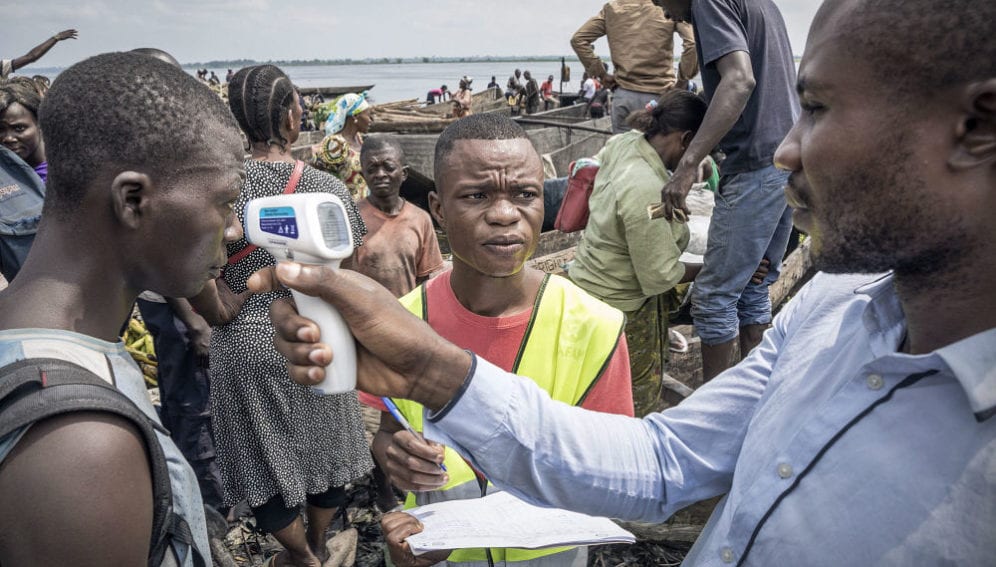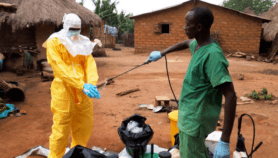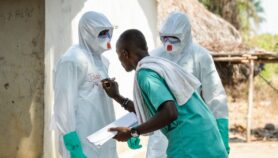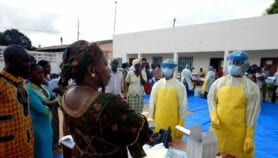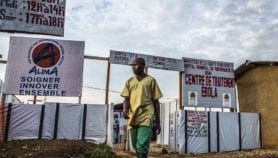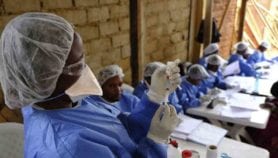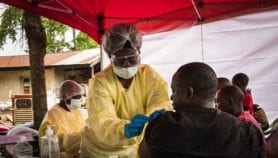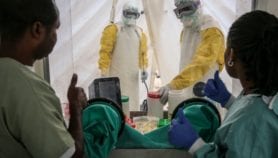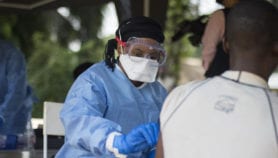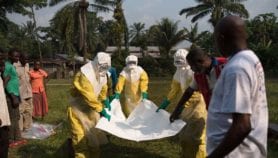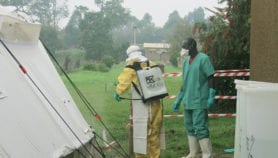Send to a friend
The details you provide on this page will not be used to send unsolicited email, and will not be sold to a 3rd party. See privacy policy.
[BLANTYRE CITY, MALAWI] The Zambian government has launched a training programme to prepare health professionals in border regions recognise, treat and prevent potential Ebola outbreaks.
The programme focuses on regions close to the Democratic Republic of Congo, where Ebola is currently raging. As of 2 October, this latest outbreak has caused 106 deaths, out of 162 confirmed cases, according to the World Health Organization.
The Zambian programme is meant to create rapid responses on the ground in case the virus is transferred into the country by travellers or refugees from the DRC’s ongoing conflict. Victor Mukonka, the director of the Zambia National Public Health Institute, said building capacity was critical to ensure quick action in case of a health emergency.
“We do not want a repeat of the tragedy that hit the Western part of our continent in 2014.”
Victor Mukonka, Zambia National Public Health Institute
“We do not want a repeat of the tragedy that hit the Western part of our continent in 2014,” he said. “Having trained rapid response teams at all levels assures capacity for any community, and we encourage all states to take up this strategy.”.
In September, Zambia’s ministry of health trained 216 health workers in the North-Western and Copperbelt provinces. Another 86 were trained in the Northern and Luapula provinces in August, the ministry said.
The training programme focuses on doctors and nurses, but also includes environmental and public health officers, pharmacists and laboratory staff.
However, to truly get a grip on the Ebola menace, both countries need to strengthen surveillance and collaboration, especially of cross-border movement, said Nathan Bakyaita, Zambia’s WHO representative, in a statement from the WHO’s Africa branch.

The DRC is one of the poorest countries in the world, and suffers from ongoing internal conflicts that periodically flare into regional wars. The UN estimates that around 800,000 people have fled the violence, of which around 50,000 have escaped to Zambia.
The ZNPHI’s training programme will provide healthcare workers with information on how to communicate risk, how to collect and transport specimens, health surveillance and strategies to prevent infection. According to Ante Mutati, a provincial surveillance officer for Luapula and a training participant, the frontline healthcare workers are meant to educate other team members on how to tackle Ebola outbreaks.
Mukonka, the ZNPHI’s director, also called for more collaboration, saying African countries should team up to “fight the preventable scourge”. “It is important that Africa takes ownership and leads in addressing matters of health and other determinants affecting the continent,” he told SciDev.Net.This piece was produced by SciDev.Net’s Sub-Saharan Africa English desk.


